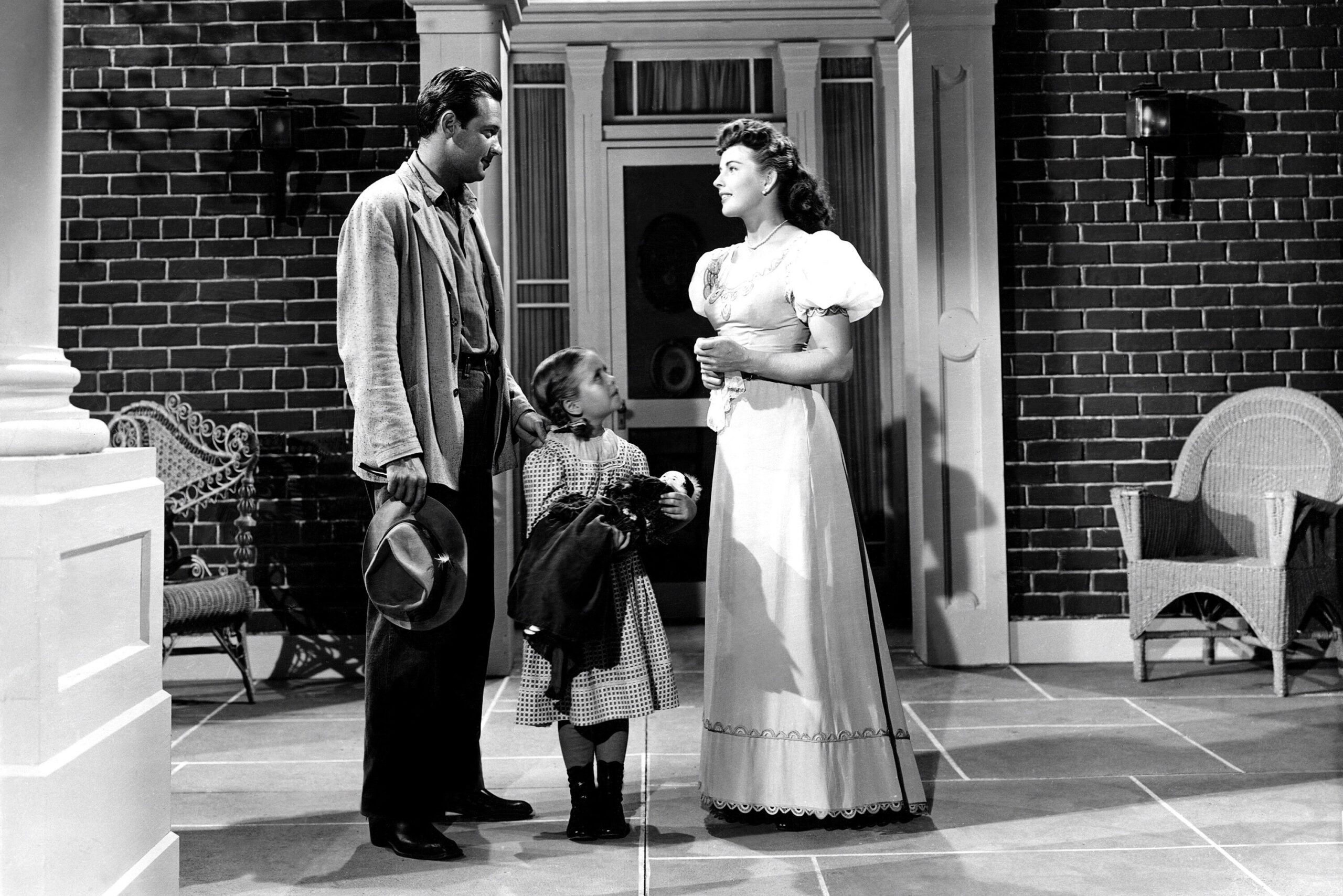1. RSVP Promptly and Honestly

In the past, if you received an invitation, responding promptly was a must. It wasn’t just polite—it helped hosts plan food, seating, and the overall vibe of the event. Ignoring the RSVP or responding late made it harder for hosts to prepare and could throw off the entire evening. Today, with the casual nature of texts and social media, it’s easy to overlook this simple courtesy, but it still matters shares Southern Living.
Being upfront is key. If you’re unsure whether you can attend, it’s okay to say so, but communicate that uncertainty as soon as possible. Hosts will appreciate your honesty, and it shows you respect their effort. Plus, it helps avoid last-minute stress for everyone involved.
2. Dress Code Adherence

A few decades ago, hosts often specified a dress code, and guests took it seriously. Whether it was cocktail attire, semi-formal, or themed outfits, guests would make the effort to match the request. It wasn’t about being fancy—it was about honoring the host’s vision for their event. Unfortunately, today, many skip the dress code, showing up in casual wear even when the invite hints at something more polished says Liz Aquino on CBS News.
Respecting the dress code isn’t just about clothes; it’s about contributing to the event’s atmosphere. If an invite calls for “dressy casual,” it’s best to avoid jeans and sneakers. Taking a moment to dress appropriately shows you care about the host’s wishes and the party’s overall feel. It makes the event more special for everyone adds the Cut.
3. Bringing a Thoughtful Gift

Bringing a gift to a party, like a bottle of wine, flowers, or a homemade treat, was once standard practice. It was a small gesture that acknowledged the host’s hard work and hospitality. Even for casual gatherings, this act was seen as good manners and a sign of appreciation. Sadly, many guests today often skip this simple yet meaningful tradition.
The type of gift doesn’t need to be extravagant. A small token shows gratitude and can set the tone for the evening. If it’s a dinner party, perhaps a dessert or artisanal bread would be perfect. The thought behind the gift matters more than its price. Hosts work hard to create a great experience, so a little acknowledgment goes a long way explains Food & Wine.
4. Offering to Help

After the main course or during the winding down phase of a party, it was customary to offer help—whether clearing plates, refilling glasses, or tidying up. This small gesture conveyed care for the host and shared responsibility for the event’s success. Nowadays, many guests sit back and relax, leaving hosts to manage everything on their own, which can be overwhelming.
Even if the host declines your offer, the effort doesn’t go unnoticed. It shows you’re attentive and willing to pitch in. Whether it’s clearing dishes or helping stack chairs, stepping up lightens the host’s load. Plus, it fosters a sense of community and shared enjoyment, which parties are all about in the first place.
5. Greeting Every Guest

Walking into a party and greeting every guest used to be a given. It helped set a warm, inclusive tone and made everyone feel welcomed. Even at large gatherings, making an effort to say hello to new faces and old friends was part of the etiquette. In contrast, modern parties often see guests clustering with familiar friends and ignoring the broader crowd, which can feel exclusionary.
Taking the time to greet others isn’t just polite—it enriches the party experience. A simple “Hi, I don’t think we’ve met!” can spark new conversations and connections. It also helps the host by fostering a friendly, interactive atmosphere. Being social and open enhances the collective energy of the event.
6. Mindful Phone Usage

Phones have become an extension of ourselves, but there was a time when keeping them tucked away during social events was the norm. Hosts expected guests to be present, engaged, and part of the moment. Constantly checking your phone or texting during a party was considered rude and dismissive. Sadly, this is a hard habit to shake in today’s connected world.
Being present matters. Limit phone usage to emergencies or quick check-ins, and avoid scrolling through social media during conversations. It shows respect for the host and the people around you. Focusing on the gathering enhances your experience and ensures you genuinely connect with others. Everyone benefits from full attention and genuine interaction.
7. Following Table Manners

Dinner parties were once synonymous with impeccable table manners. Guests knew the basics: keep elbows off the table, chew quietly, and wait for everyone to be served before digging in. These small details made meals more enjoyable and respectful for all. Today, casual attitudes toward eating etiquette are more common, even when hosts strive for formality.
Practicing good table manners goes beyond appearances—it’s about respect. It makes the meal more pleasant for everyone, allowing hosts to shine and guests to enjoy the food without disruptions. Plus, good manners never go out of style; they elevate the dining experience and show gratitude for the effort behind the meal.
8. Hosting Thank-You Notes

After attending a party, it was customary to send a handwritten thank-you note. This simple act expressed appreciation for the host’s hospitality and the enjoyable evening. While emails and texts are convenient, they lack the personal touch of a handwritten message. The tradition has faded, but it’s a thoughtful gesture worth reviving.
A quick note saying “Thank you for the wonderful evening” can go a long way in strengthening friendships and acknowledging the host’s hard work. It doesn’t need to be lengthy—a few sincere sentences are enough. Sending a thank-you note shows you value the time and effort the host invested in creating a memorable experience.
9. Respecting End Times

Hosts often set an end time for parties, and guests traditionally respected it. Staying past the designated wrap-up time was seen as inconsiderate, as it placed extra strain on the host. Today, many guests linger indefinitely or depart unpredictably, which can exhaust hosts who’ve spent hours organizing the event.
If a party is scheduled to end at 10 PM, leaving around that time helps hosts wind down gracefully. If you’re having a great time and the host seems open to extending the evening, it’s okay to ask, but avoid assuming the party continues indefinitely. Being mindful of time shows empathy for the host’s effort and energy levels.
10. Moderating Alcohol Consumption

Parties often involve alcohol, and responsible drinking used to be an unspoken rule. Overindulging was frowned upon as it could lead to disruptive behavior and discomfort for others. While modern parties are more relaxed, maintaining moderation ensures everyone enjoys themselves without incidents.
Pacing yourself and knowing your limits isn’t just polite—it helps you stay engaged and in control. Overdrinking can create awkward situations, dampening the mood for both hosts and guests. Being mindful allows you to enjoy the evening responsibly, keeping the atmosphere fun and relaxed for everyone.
11. Introducing Yourself to New Guests

When arriving at a party, especially if you don’t know many people, introducing yourself was standard etiquette. It helped break the ice and built a welcoming atmosphere. Even in larger gatherings, taking the initiative to meet new people added to the event’s social fabric. Today, guests often stick to their friend groups, missing out on meeting new people.
Introducing yourself can be as simple as saying, “Hi, I’m [Your Name], it’s great to meet you!” It’s an easy way to make connections and show you’re engaged. Parties are about mingling and creating new bonds, so stepping out of your comfort zone to meet others enriches the experience for everyone.
12. Complimenting the Host

A genuine compliment about the food, decor, or overall ambiance was expected during parties. Hosts put significant effort into planning and executing their vision, so recognizing that work was courteous. In today’s fast-paced world, guests might overlook this simple act of appreciation, but it still matters.
Telling the host, “The food is amazing!” or “You’ve decorated so beautifully!” shows that you notice and value their hard work. Compliments uplift hosts and create positive energy in the room. They’re simple, impactful gestures that make the host feel appreciated and encourage them to host future gatherings.
13. Avoiding Overcrowding Conversation Spaces

At parties, guests traditionally moved around and mingled, ensuring conversation areas weren’t overcrowded. If a group of friends was talking in a small space, others would naturally disperse, keeping the flow comfortable. Nowadays, cliques often stick together in tight spaces, which can create bottlenecks and hinder movement.
Being mindful of space keeps the party dynamic and accessible. If you’re in a congested spot, it’s polite to step aside or change locations. This consideration keeps conversations flowing and ensures everyone can move freely without disruptions. It’s a small adjustment that makes a big difference in the party’s overall comfort.
14. Respecting House Rules

Whether it was a no-shoes policy or designated smoking areas, guests respected house rules without question. Hosts expected their guidelines to be followed, as it maintained order and comfort. Today, guests sometimes overlook these rules, unintentionally disrespecting the host’s home.
Pay attention to any house rules outlined by the host. If shoes are to be removed, or certain rooms are off-limits, it’s polite to comply. Hosts set rules to ensure their home and guests are comfortable, so respecting those guidelines shows consideration and enhances the evening for everyone.
